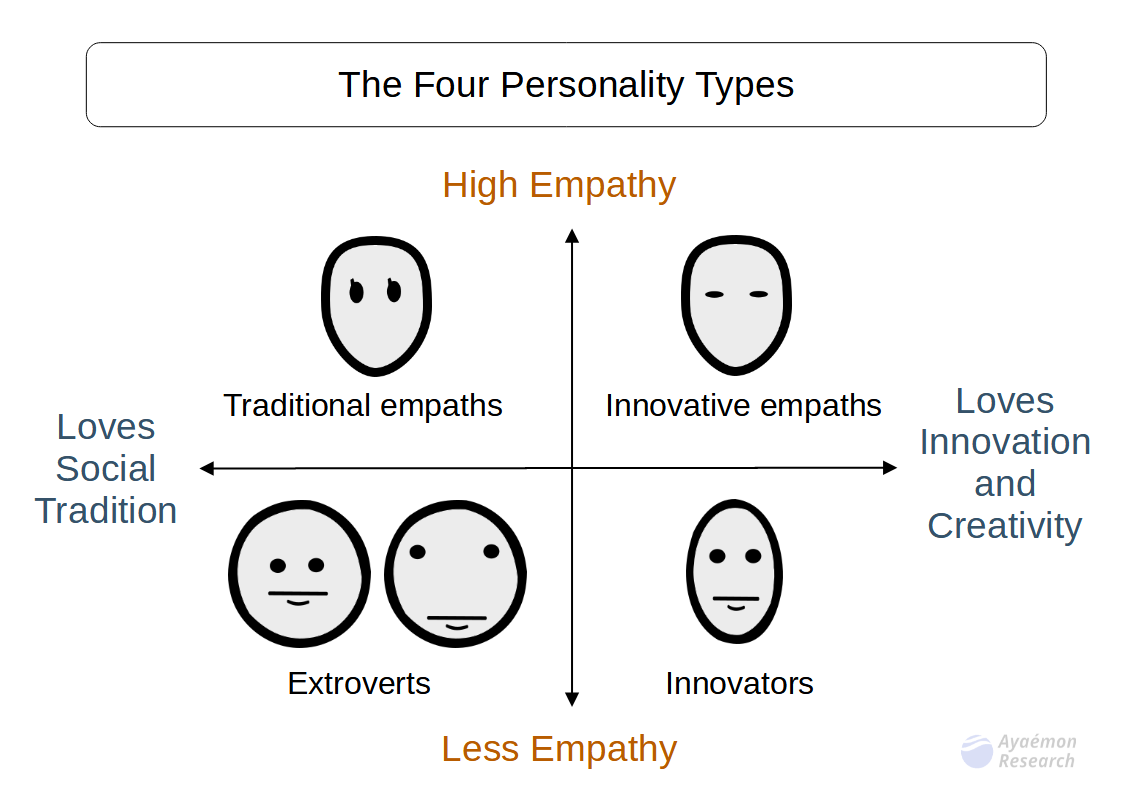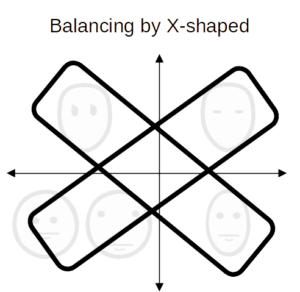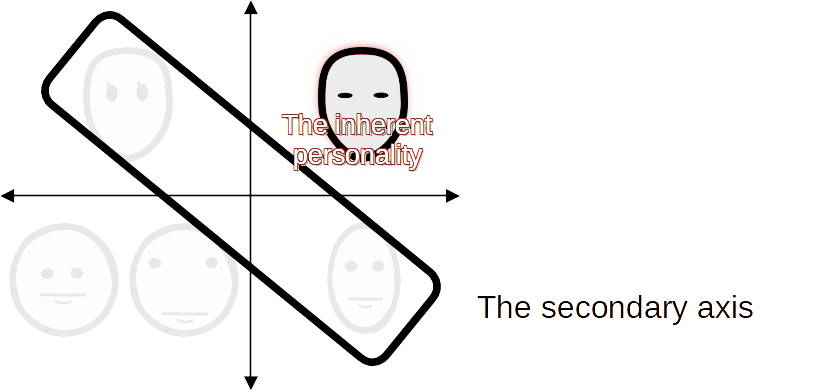For about a month, I have developed a new mental therapy method, the Cross-Judging method. It seems I explained everything I wanted to say. Today, I will talk freely and close the topic related to it.
How to solve our mental problems
Sometimes, we want to solve our mental problems, such as being too empathic for others, having uncontrollable emotions, suffering from continuous flashbacks, or worrying too much about the future. It is like a heavy load. We often cannot let go of them, no matter how we struggle.
I had such mental problems for a long time until last month. Perhaps it was from the age of junior high or high school. I was born with individuality, but my childhood environment didn’t allow it. I had to repress my values and live as an extrovert to survive.

That made me confused about values. Many values inside me shouted, “You should do this!” It was often unavoidable. They drove me to follow them, even though I knew they would exhaust me. I had no idea which voice was mine.
When I was in university, I fortunately met self-help, psychology, and game creation. I found I had an inferiority complex and could deal with it. In addition, I found that creating something fulfilled me. I began to salvage myself through creation. Perhaps that was the first step in solving my mental problems.
My final key to solving it
Then, at last, I felt like I had solved all my mental problems, as I mentioned in an earlier post (this article). After trying many ways, the Cross-Judging method was the finishing touch.
Thanks to that, I can live with no mental trouble now. It is like a warm spring has come. Until then, it was like I was in a stormy blizzard. I couldn’t believe that there were such calm, comfortable days.

Of course, I still have many other subjects that I want to try, such as a weak liver since birth, not using my nature well, how to migrate to a better environment, or how to deal with restrictions on my resources. However, it was the biggest accomplishment I have ever had.
The four types of personalities
Let’s review the Cross-Judging method.
The Cross-Judging method is a way to balance our minds. I developed it based on my experience.
To explain it, let’s see the concept of the four types of personalities as follows:

The explanation of each personality
We classify our personalities into four types, as follows:
- Extroverts: People who want to live the same way as their surroundings, but want to gain socially valuable things more than others. They leave behind weak people because they value winners rather than losers. They have a role in maintaining the main foundations of society.
- Traditional empaths: People who want to live the same way as their surroundings and live with empathy. That often drives them to do things related to empathy in traditional ways, such as consulting, advising, helping weak people directly, preparing for the future, or creating works with their socially common imagination. They have a role in maintaining their society by supporting weak people.
- Innovative empaths: People who want to keep trying new ways and live with empathy. That often drives them to do things related to empathy in new ways, such as philosophizing, developing new ways of thinking for people with troubles, showing their peculiar imagination, simplifying people’s lives, or discovering new ways to survive more efficiently. They have a role in developing new ways for weak people.
- Innovators: People who want to keep trying new ways and gain socially valuable things more than others. They improve society with their individuality but leave behind weak people. They have a role in developing new ways to improve the total level of society.
The Cross-Judging method
In the Cross-Judging method, we think we also have those personalities inside us. That allows us to clarify the values in our minds.
We balance those personalities based on two axes, which are X-shaped, as shown in the following figure:

- The primary axis: The axis that connects our inherent personality with an inferiority complex. This axis determines our comfort in life directly.
- The secondary axis: The other axis that connects the rest of the personalities. This axis determines our fun in life. In other words, it gives us the width and depth of our lives.
How to deal with two axes
We can improve our lives by changing the balance of those two axes. If we modify the balance of the primary axis, it will impact our lives directly. The secondary axis doesn’t matter, but it affects our current state.
Sometimes, we hesitate to face changing the primary axis and stick to the secondary axis. That often stagnates our lives.

However, let me focus on only the secondary axis this time because I am still thinking about how to balance the primary axis. I will talk about it at some point.
About the secondary axis
I will explain how to balance the secondary axis. The way of balancing is simple.
If we feel stagnated, break the balance. If we feel bored or limited on one side, try emphasizing the opposite side and finding a new balance.
If we ignore them and keep sticking to one side of an axis, it often causes problems in our lives.

For example, if we have a mental problem related to empathy, we could be biased on the secondary axis toward the empathic side.
My case of an unbalanced mind
That was my case. Let me use it as an example. I was too empathic. That brought me many problems related to empathy.
I am an innovative empath, so my secondary axis is the connection between traditional empaths and innovators, as shown in the following image:

In other words, the too-biased evaluation of traditional empaths and disregard for innovators’ values caused my mental problems.
My way to solve my mental problems
After I noticed that, I immediately changed my behavior. I immediately suspended all the activities related to empathy that I could think of. For example, I stopped reading emotional stories. I gave up activities to realize my future imagination. I stopped imagining and enjoying being in a different, great place.
Then, I started to stimulate innovators’ values. I made a list to make it more physically or materially abundant.
For example, I felt I was too biased toward money, so I exchanged some for something more material and valuable. I bought new fundamental things that were too old, such as undershirts or a smartphone. My undershirts were about 7 or 8 years old, and my smartphone was over 6 years old.

I realized that I had forgotten about material improvements. At first, I only thought of what was necessary and couldn’t find what I should add to my life. However, after noticing I could go beyond the necessity, I gradually found things to improve materially. There were many things that I wanted to change, such as a pillow, a bed pad, walking shoes, or rainwear.
That was a fun process because I was able to show my creativity. I noticed creativity is exchanging something. Using money, cooking, or creating something from scratch are examples. By exchanging things with more valuable things, we will be more abundant. That is the opposite perspective from the viewpoint of savings that traditional empaths favor.
Changing the balance gives me an immediate effect. Although I had to maintain that state until I got used to it, it soon changed my mental state.
How to deal with social media
The Cross-Judging method tells us how to deal with our belongings, which have good and bad aspects. A typical example is the relationship with social media (SNS). SNS provides us with much information but also has negative effects.
If we want to progress on the primary axis, SNS will work because we can have examples of life from ideal people. They will give us ideal lifestyles and inspirations that encourage us.

However, on the other hand, if we want to balance the secondary axis, SNS often impacts our minds negatively because we cannot change the balance flexibly. Having several accounts might work, but that will also create confusion.
If we separate the primary and secondary axes, we might have a good balance with SNS and many belongings.
Conclusion
Anyway, that is what I wanted to talk about. The Cross-Judging method gave me a mental balance that works instantly.
I recommend it to those with mental problems like me.
Perhaps this is the wrap-up of the topics about the Cross-Judging method. If you want to learn about it, please refer to the articles below: Tag: cross-judging method
Thank you for reading this article. I hope to see you in the next one.


